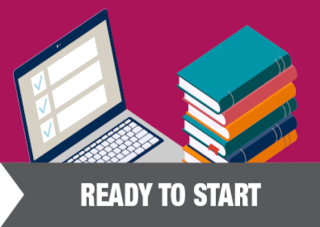The aim of the Student Experience Transformer is to transform the UCL student experience and drive efficiencies and effectiveness in staff delivery of a seamless UCL Student Journey.

The Student Experience Transformer is seeking to address the five key challenges identified by UCL students and staff that will significantly improve both the student and staff experience.
Derfel Owen, Registrar and Director of Student & Registry Services, reflects "A successful university is one where the relationship with students is strong and based on partnership. The Student Experience Transformation Programme exists to put students at the heart of UCL's decision making and it make sure that we are investing our time, effort and resources on parts of the student journey to which students attach most value. Our research on the student journey, in partnership with our Students' Union has shone a light on these moments that matter and we have moved at pace to deliver solutions"
Five key challenges
The Student Experience Transformer has defined five work packages to tackle each of the five key challenges. These are cross-cutting institutional challenges requiring effort that spans people, organisation, culture, policy, process and technology change.
Challenge 1: Getting sorted – Transform the pre-arrival, welcome and induction experience

Key achievements:
- Through this work package we have helped establish clear leadership and ownership of Welcome and Induction, recognising this as a vital stage in the student journey for establishing a relationship with UCL and helping them to make friends and build networks.
- The overall positive impact of the approach to Welcome and Induction was reflected in the 2021-22 edition of the New to UCL survey which showed that 94% of UCL students are satisfied with the experience of arrival at UCL. This is up 8% from the previous year, and the highest ever score received for this question.
- The New to UCL results showed increases of 22% of students reporting that social events helped to settle them in and reporting they found the Welcome Fair useful. Questions relating to socialising and getting to know people also saw increased scores, with students reporting, “I’ve been able to make social connections with peers in my department or on my programme,” increasing by 18%.
- A case study on Welcome at UCL was featured in the Student Futures Manifesto by the UPP Foundation.
Challenge 2: Ready to start – Streamline module selection and confirmation

Key achievements:
- Year on year enhancements are being made to the student experience of making module selections. This includes greater automation, better information and advice, and significant reductions in rejections of module choice.
- In 2022 module selection for 2022/23 returning students has been moved from just before the start of term to Spring. Allowing students to select modules earlier will provide departments with more information on student demand for their modules. If more students can be accommodated, fewer will be rejected from their module choices.
- In 2021 some research was commissioned by SET to understand applicant choice and what it means for students - 69% of UG students indicated that a choice of less than 20 modules was ideal, and 84% of PGT students indicated that a choice of less than 20 modules was ideal with 63% indicating that less than 11 was ideal.
- Module rejections have been reduced by 30% overall and 60% in the top 30 most popular modules.
Challenge 3: Finding my way – Student enquiry and relationship management

Key achievements:
- A single point of entry has been established for student enquiries through askUCL. askUCL is a self-help centre designed to streamline the way UCL handles student enquiries. Students can either browse the knowledge base of FAQs or search for answers based on categories and keywords. All enquiries and responses are linked to a student’s account, which means they can check the progress of their enquiries.
Challenge 4: Being assessed – Digitise assessment and exams journey

Key achievements:
- As part of our work with Academic Services, Arena, Digital Education and ISD to transform the assessment and exams process for students we've develped the UCL Assessment Journey Map. The map sets out an objective definition of each stage of the assessment journey – from creation and design, through student participation and submission, to marking, moderation, external examining, providing feedback and recording and release of marks.
- 1,100 exams were sat by 48,742 candidates on the new online platform in April 2021. This was achieved with less than a year’s lead in time from procurement through to build, integration, communication and go live.
- Derfel Owen was featured on the Jisc podcast to talk about how UCL moved exams online as part of the university wide digital assessment strategy.
Challenge 5: Being supported – Aligning staff roles to the student journey

Key achievements:
- The Faculty of Population Health Sciences is acting as a pathfinder project for the University, through which they have the opportunity to improve the provision of Education Administration and Student Experience as well as staff satisfaction. The Faculty is supported by SET and work with an external partner, HEdSpace Consulting.
- The Pathfinder Project has been working with the faculty to support a new operating model focussing on ways of working and consistency of job descriptions across the faculty, ready for implementation by the end of the June 2022.
 Close
Close

